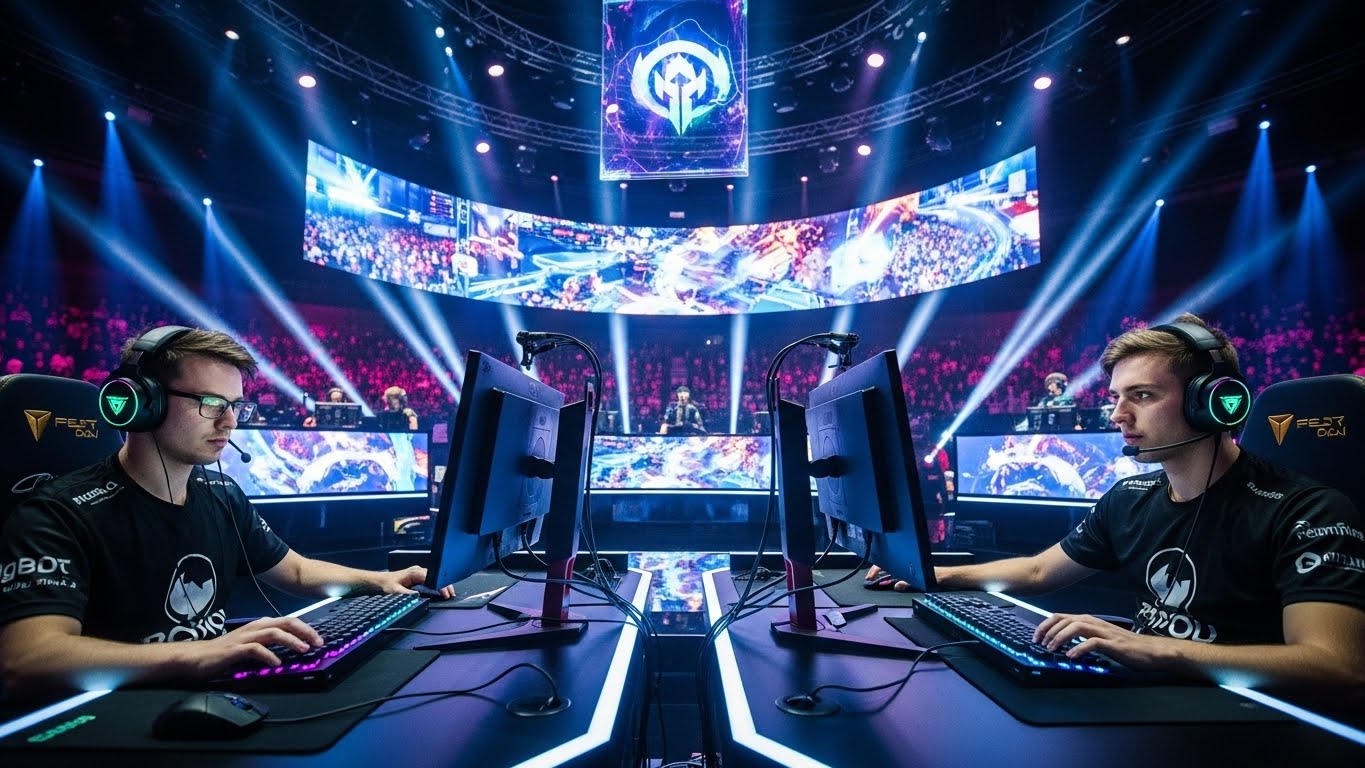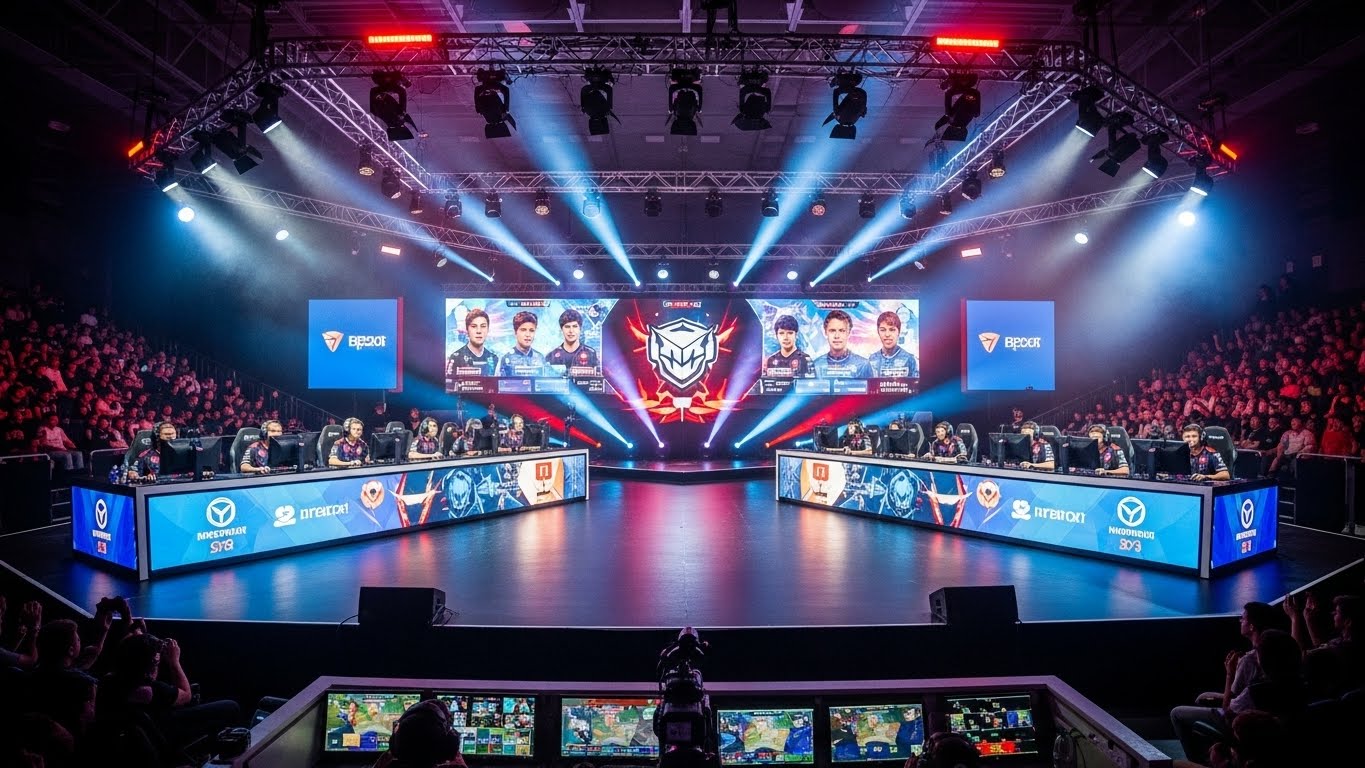Esports, or electronic sports, has become one of the fastest-growing industries in the world, captivating millions of fans and generating billions of dollars annually. Once considered a niche hobby, competitive gaming has transformed into a global phenomenon, bridging cultures, creating new careers, and redefining entertainment in the digital age. This blog explores the multifaceted world of esports, examining its history, games, tournaments, economic impact, technological advances, and its future potential.
The Origins of Competitive Gaming
The roots of esports can be traced back to the 1970s and 1980s when video games began to capture public imagination. The earliest competitions were modest, often organized in arcades or college campuses. One of the first known video game competitions occurred in 1972, when students at Stanford University competed in the game Spacewar!. Players were recognized for their skill, but the events were small-scale and more social than commercial.
The 1980s marked a turning point with the rise of arcade culture. Games like Pac-Man, Donkey Kong, and Street Fighter drew competitive crowds, and tournaments such as the 1980 Space Invaders Championship attracted thousands of participants. These early events laid the groundwork for competitive gaming as a spectator activity, showcasing the thrill of skill-based challenges.
The Rise of Online Gaming
The advent of the internet in the 1990s revolutionized the gaming landscape. Multiplayer games such as Quake, Counter-Strike, and StarCraft introduced global competition, allowing players from different regions to challenge each other. Online leaderboards and clan systems fostered communities, enhancing the social and competitive aspects of gaming.
South Korea emerged as a hub for competitive gaming during this period. The country’s robust broadband infrastructure and cultural embrace of technology facilitated the rise of professional gaming leagues. Titles like StarCraft: Brood War became national sensations, and players were celebrated as celebrities. This era highlighted the potential for esports to transcend traditional entertainment boundaries.
Popular Esports Games
The world of esports encompasses a diverse array of games, each with its own competitive scene, community, and tournament structure. Some of the most popular esports genres include:
Multiplayer Online Battle Arenas (MOBAs)
Games like League of Legends and Dota 2 have dominated the esports scene for years. These team-based strategy games require coordination, quick reflexes, and deep understanding of mechanics. Major tournaments like The International for Dota 2 and the League of Legends World Championship offer prize pools in the tens of millions, highlighting the scale and financial stakes involved.
First-Person Shooters (FPS)
FPS games like Counter-Strike: Global Offensive, Call of Duty, and Valorant emphasize precision, strategy, and reflexes. These games often feature professional leagues and seasonal competitions, drawing massive audiences online and in arenas. FPS esports have also benefited from technological improvements in streaming, allowing real-time broadcast of matches with commentary and analysis.
Fighting Games
The fighting game community (FGC) revolves around titles like Street Fighter, Tekken, and Super Smash Bros. These games focus on one-on-one combat, with high-level players demonstrating incredible skill and tactical knowledge. Tournaments such as EVO (Evolution Championship Series) attract players and fans from all over the world, showcasing the global appeal of competitive fighting games.
Sports and Racing Simulations
Digital versions of traditional sports, such as FIFA, NBA 2K, and Gran Turismo, have created their own competitive ecosystems. These simulations allow athletes and fans to engage with sports in a digital format, offering new opportunities for professional competition and sponsorships.
Major Esports Tournaments
Esports tournaments are central to the culture and growth of competitive gaming. These events range from local competitions to global spectacles, often filling stadiums with enthusiastic fans and attracting millions of online viewers. Some of the most notable tournaments include:
- The International (Dota 2): Known for its enormous prize pools, often exceeding $40 million, The International is a pinnacle of esports achievement. Teams from around the world compete for glory, making it one of the most prestigious events in the gaming calendar.
- League of Legends World Championship: With viewership surpassing traditional sports events, this championship showcases the highest level of MOBA competition. Teams battle through rigorous regional qualifiers to earn a spot in the global finals.
- Counter-Strike Major Championships: CS:GO Majors are critical for the FPS community, bringing together the best teams to compete in tournaments with large prize pools and international recognition.
- EVO Championship Series: EVO remains a staple for fighting game enthusiasts, providing a platform for players to demonstrate skill, creativity, and adaptability in high-pressure matches.
The Role of Streaming Platforms
Streaming platforms like Twitch, YouTube Gaming, and Facebook Gaming have revolutionized the way audiences consume esports. These platforms provide live broadcasts of tournaments, player streams, and interactive content, allowing fans to engage with their favorite players and teams in real time.
Streaming has also created new revenue streams for professional gamers. Subscriptions, donations, sponsorships, and advertising partnerships offer financial support, enabling esports athletes to pursue full-time careers. Additionally, content creation and streaming foster a sense of community, connecting fans globally.
Professional Esports Careers
The rise of esports has created numerous career opportunities beyond playing competitively. Professional esports careers include:
- Players: Elite gamers compete in tournaments, signing contracts with teams and earning salaries, prize money, and sponsorship deals.
- Coaches and Analysts: Similar to traditional sports, coaches and analysts guide teams, strategize gameplay, and analyze opponent tactics.
- Streamers and Content Creators: Many players build personal brands through streaming, generating income and promoting their teams.
- Event Organizers and Broadcasters: Professionals who manage tournaments, produce broadcasts, and engage audiences contribute to the overall ecosystem.
- Esports Journalists: Writers and commentators provide coverage, analysis, and reporting, helping fans stay informed and engaged.
Economic Impact of Esports
Esports is now a multi-billion-dollar industry, with revenue streams spanning sponsorships, advertising, merchandise, ticket sales, and media rights. Major brands from technology, fashion, food, and beverage sectors have recognized the marketing potential of esports, investing heavily in sponsorship deals and partnerships.
According to recent industry reports, the global esports market is expected to surpass $2 billion annually, with millions of viewers tuning in to watch competitive events. This economic growth has implications beyond entertainment, influencing technology development, urban planning for esports arenas, and the creation of new jobs.
Technological Advancements Driving Esports
Technology is at the heart of esports growth. Advancements in hardware, software, and connectivity have enabled high-quality gameplay, live streaming, and global tournaments. Key innovations include:
- High-Performance Gaming PCs and Consoles: Powerful hardware ensures smooth gameplay and competitive fairness.
- Virtual Reality (VR) and Augmented Reality (AR): VR and AR offer immersive gaming experiences, potentially transforming competitive formats.
- Streaming Infrastructure: Platforms with low latency and high-quality video streaming enhance fan engagement and accessibility.
- Data Analytics and AI: Teams leverage analytics and artificial intelligence to study opponents, optimize strategies, and improve player performance.
Esports and Culture
Esports has become more than just competition—it is a cultural phenomenon. It fosters communities, fan identities, and shared experiences across borders. Cosplay, fan art, discussion forums, and social media amplify engagement, while esports celebrities serve as role models for aspiring gamers.
Moreover, esports has influenced mainstream media, with documentaries, movies, and television shows exploring the lives of professional gamers and the competitive scene. This cultural integration reinforces the legitimacy and visibility of esports worldwide.
Challenges in Esports
Despite its rapid growth, esports faces several challenges:
- Player Burnout: Intense training schedules and high-pressure competitions can lead to mental and physical exhaustion.
- Cheating and Fair Play: Maintaining competitive integrity requires robust anti-cheat systems and regulations.
- Monetization and Sustainability: While revenue is growing, smaller teams and players often struggle to secure consistent income.
- Health Concerns: Prolonged gaming and sedentary lifestyles can impact physical health, emphasizing the need for wellness programs.
The Future of Esports
The future of esports looks promising, with opportunities for further growth and innovation. Emerging technologies like cloud gaming, VR esports, and AI-driven coaching could redefine competitive formats. Additionally, esports may continue to integrate with traditional sports, educational programs, and entertainment media, creating new avenues for engagement.
Global expansion remains a priority, with regions such as Southeast Asia, Latin America, and Africa showing increasing interest and participation. Governments and institutions are also recognizing esports as a legitimate career path and potential source of economic development.
Conclusion
Esports has evolved from a niche hobby into a global industry, reshaping entertainment, technology, and culture. It offers thrilling competitions, lucrative careers, and a sense of community for millions worldwide. As technology advances and the industry continues to expand, esports will likely become an even more significant part of the digital age.
The story of esports is one of innovation, passion, and resilience, proving that digital arenas can inspire the same excitement, loyalty, and admiration as traditional sports. For fans, players, and investors alike, the future of esports is not just promising—it is already here.



